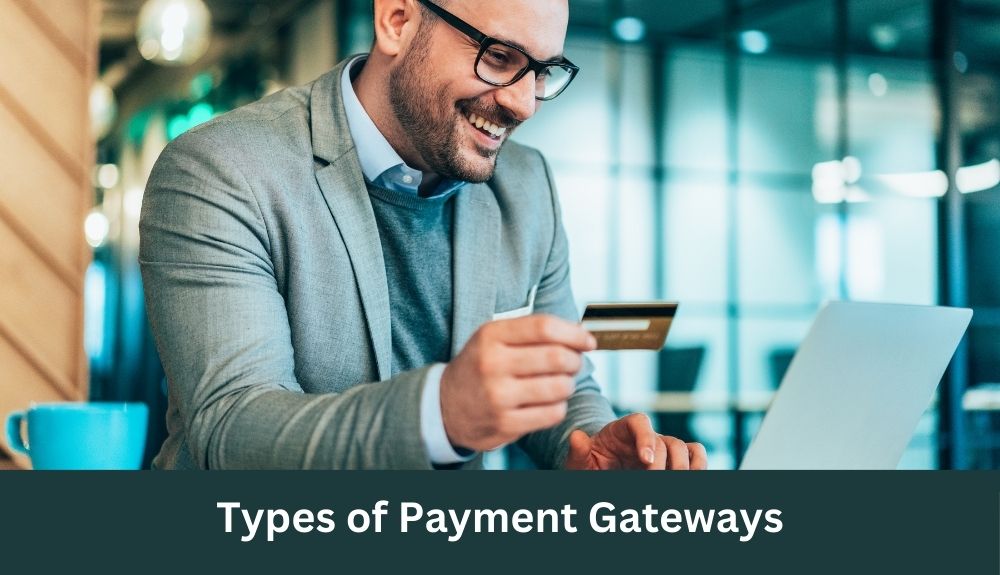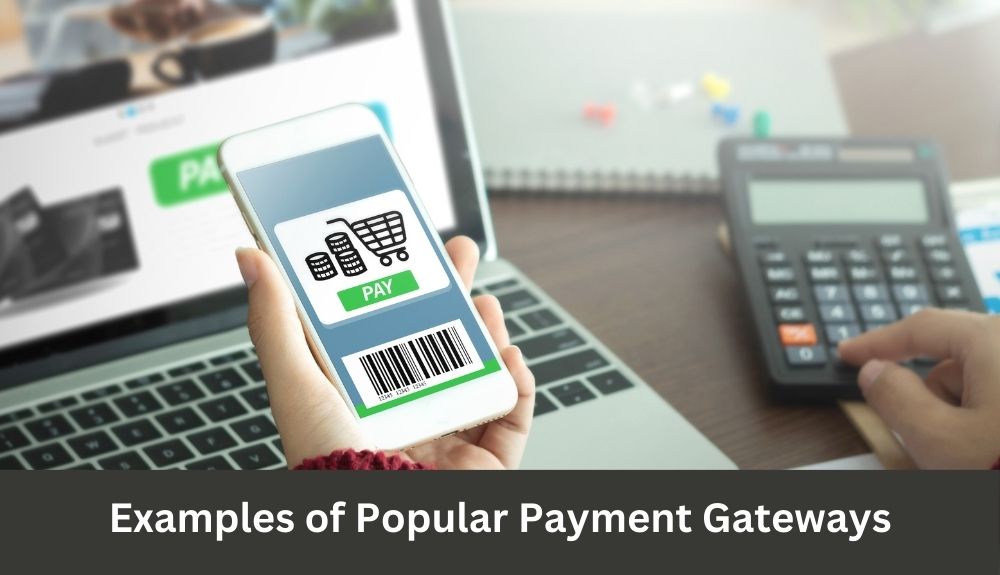
By max February 4, 2024
Are you a business owner looking to enhance your online payment system? Choosing the right payment gateway is essential for a smooth transaction process and ensuring customer satisfaction. With countless options available, it can be overwhelming to determine which features to prioritize. But fret not! We’ve got you covered.
In this comprehensive guide, we’ll walk you through the key features to look for when selecting a payment gateway for your business. From transaction fees and security measures to customer support and user experience, we’ll delve deep into each aspect so you can make an informed decision.
By the end of this blog, you’ll have a clear understanding of the critical factors to consider, enabling you to choose the best payment gateway that aligns with your business needs. So, let’s dive in and explore the world of payment gateways, ensuring a seamless online payment experience for both you and your customers. Get ready to take your business to new heights!
Introduction to Payment Gateways
In the fast-paced world of e-commerce, payment gateways play a vital role in ensuring smooth and secure online transactions. A payment gateway acts as a bridge between customers, businesses, and financial institutions by securely transmitting transaction data and facilitating the authorization and settlement of payments.
With the ever-increasing popularity of online shopping, having a reliable and efficient payment gateway is essential for any business. It allows customers to make quick and convenient payments using various methods such as credit and debit cards, digital wallets, and bank transfers.
The importance of a payment gateway cannot be overstated. It not only ensures the smooth processing of transactions but also enhances customer trust and satisfaction. By providing a seamless payment experience, businesses can boost their conversion rates and drive customer loyalty.
To select the best payment gateway for your business, it is crucial to understand the key features and factors to consider. In the next section, we will delve into these factors, helping you make an informed decision that aligns with your specific needs and requirements.
Factors to Consider When Choosing a Payment Gateway
When selecting a payment gateway for your business, it’s essential to evaluate several factors to ensure smooth online transactions and customer satisfaction. By considering the following key factors, you can make an informed decision that aligns with your business needs:
Integration Options
Choose a payment gateway that seamlessly integrates with your e-commerce platform or website. Look for compatibility with popular shopping carts and systems, enabling a streamlined payment process for your customers.
Geographic Reach
Consider the payment gateway’s ability to handle transactions in the regions where you operate. Look for support for international currencies and local payment methods to provide a frictionless experience for customers across borders.
Reliability
Opt for a payment gateway that guarantees high uptime and reliability. Downtime can lead to missed sales opportunities and frustrate customers. Research the gateway’s track record and ensure it offers robust infrastructure and redundancy measures.
Scalability
Assess the payment gateway’s ability to grow with your business. Look for flexibility in handling increased transaction volumes, as well as compatibility with future expansions, such as multi-store integration or omnichannel capabilities.
Customer Support
Select a payment gateway provider renowned for excellent customer support. Prompt and knowledgeable assistance is crucial in resolving any payment-related issues promptly, ensuring customer satisfaction and uninterrupted business operations.
Reputation
Research and evaluate the reputation of payment gateway providers. Look for companies with a solid track record, positive customer reviews, and a history of strong security measures to protect sensitive customer data.
By carefully considering these factors, you can choose a payment gateway that smoothly integrates with your business, provides reliable service, and instills confidence in your customers’ payment experience. Remember, making an informed decision about your payment gateway is essential for the success and growth of your online business.
Understanding How Payment Gateways Work
Payment gateways play a crucial role in facilitating secure and seamless online transactions. They act as a virtual bridge between the customer and the merchant, ensuring the smooth flow of payment information. Here’s a brief explanation of how payment gateways work:
1. Customer initiates the payment: When a customer makes a purchase on an e-commerce website, they proceed to the checkout page and enter their payment details, such as credit card information.
2. Encryption and authorization: The payment gateway encrypts the customer’s sensitive information to protect it from unauthorized access. Then, it sends the encrypted data to the respective payment processor or acquiring bank for authorization.
3. Authorization and authentication: The payment processor or acquiring bank verifies the customer’s card details and checks if they have sufficient funds to complete the transaction. This step ensures the validity and security of the payment information.
4. Response and confirmation: Once the authorization process is complete, the payment processor sends a response to the payment gateway, indicating whether or not the transaction is approved. The payment gateway then relays this response to the merchant and customer.
5. Transaction completion: If the transaction is approved, the payment gateway notifies the customer that the payment was successful. At the same time, it transfers the funds from the customer’s account to the merchant’s account.
By facilitating these steps, payment gateways provide a secure and efficient means for businesses to accept online payments. They help protect sensitive customer data and ensure a smooth transaction experience for both the buyer and the seller.
Now that you have a basic understanding of how payment gateways work, let’s explore the different types and factors to consider when choosing the right payment gateway for your business.
Types of Payment Gateways

When it comes to payment gateways, there are several types to choose from. Understanding these types can help you make an informed decision for your business. Here are the main types to consider:
1. On-Site Payments
On-site payment gateways allow customers to complete their transactions without leaving your website. This type of gateway provides a seamless shopping experience and enhances brand trust by keeping customers within your online store throughout the entire payment process.
2. Checkout on Site Payment Off-Site
With this type of payment gateway, customers are directed to a secure external page to complete their payment. The external page is hosted by the payment gateway provider, ensuring the highest level of security for sensitive customer information. Once the payment is processed, customers are redirected back to your website.
3. Redirects
Redirect payment gateways direct customers to the payment gateway provider’s platform to complete the transaction. Once the payment is successful, customers are redirected back to your website. This type of gateway allows you to leverage the security measures implemented by the provider while still offering a smooth checkout experience.
Each type of payment gateway has its own advantages and considerations. Consider your business requirements, customer preferences, and security needs when choosing the right payment gateway for your e-commerce store.
Remember, a well-chosen payment gateway is a critical aspect of your online business. It not only ensures smooth transactions but also enhances the overall user experience and customer satisfaction.
Limitations of Payment Gateways
While payment gateways play a crucial role in facilitating online transactions, it’s important to be aware of their limitations. Here are some key limitations to consider:
1. Restrictions on Card Types:
Some payment gateways may have limitations on the types of cards they accept. For example, certain gateways may only support major credit cards, while others may also accommodate debit cards or alternative payment methods. It’s essential to choose a payment gateway that aligns with your customers’ preferred payment options.
2. International Payment Challenges:
Certain payment gateways may have restrictions or complexities when it comes to processing international payments. This can present obstacles if your business operates or plans to expand globally. Consider a payment gateway with robust international capabilities to ensure smooth transactions across borders.
3. Potential Security Flaws:
While payment gateways prioritize security, no system is completely immune to potential security vulnerabilities. It’s essential to choose a reputable payment gateway provider that adheres to industry standards and utilizes methods like encryption to protect sensitive customer data.
By understanding these limitations, you can make informed decisions and select a payment gateway that best aligns with your business goals and customer needs. Remember to evaluate the specific features and functionality offered by each payment gateway to find the most suitable option for your business.
Choosing a Secure Payment Gateway
When it comes to selecting a payment gateway for your business, security should be a top priority. Ensuring the safety of your customers’ payment information is essential for building trust and protecting sensitive data. Here are some key factors to consider when choosing a secure payment gateway:
1. Customer Payment Preferences: Take into account the payment methods your customers prefer, such as credit cards, debit cards, digital wallets, or bank transfers. A payment gateway that supports a wide range of payment options can enhance the purchasing experience.
2. Integration Compatibility: Check if the payment gateway integrates seamlessly with your e-commerce platform or website. Compatibility ensures smooth transactions and minimizes technical glitches.
3. Fees: Evaluate the fee structure of different payment gateways. Look for transparent pricing models, considering factors like transaction fees, monthly subscriptions, setup costs, and chargeback fees. Compare these costs with the services and features offered.
4. Encryption Security: Ensure that the payment gateway follows industry-standard security protocols, such as PCI DSS compliance. Look for features like data encryption and tokenization, which add an extra layer of protection to customer payment information.
5. Reputation: Research the reputation and track record of the payment gateway provider. Read reviews, check their track record for uptime and reliability, and ensure they have positive feedback from businesses similar to yours.
By carefully considering these factors, you can select a secure payment gateway that not only protects your customers’ payment information but also provides a seamless and trustworthy transaction experience for both you and your customers. Remember, the security of your online transactions is a critical aspect of today’s digital age.
Benefits of Stacking Payment Gateways
Stacking payment gateways can offer several advantages for your online business. By using multiple payment gateways, you can provide more options for your customers and enhance their online shopping experience. Here are some key benefits of stacking payment gateways:
1. Increased Payment Options: Offering multiple payment gateways allows customers to choose their preferred payment method. Some customers may prefer using credit cards, while others may prefer digital wallets or alternative payment methods. By providing a variety of payment options, you can cater to a wider audience.
2. Improved Conversion Rates: Different customers have different payment preferences. By offering multiple gateways, you increase the likelihood of customers finding a payment method they trust and feel comfortable using, ultimately improving your conversion rates.
3. Enhanced User Experience: Stacking payment gateways helps to streamline the payment process for customers. If a particular payment gateway is experiencing technical issues, customers will still have alternative options available, minimizing any disruptions and ensuring a smooth checkout experience.
4. Mitigating Risk: By diversifying your payment options, you can spread the risk associated with payment processing. If one payment gateway experiences an outage or disruption, you can quickly switch to using another gateway to ensure uninterrupted transactions.
5. Global Reach: Different payment gateways have varying levels of global coverage. By using multiple gateways, you can expand your reach and accept payments from customers around the world, increasing your potential customer base.
In conclusion, stacking payment gateways offers several benefits, including increased payment options, improved conversion rates, enhanced user experience, risk mitigation, and global reach. By utilizing multiple gateways, you can provide a seamless payment experience for your customers, leading to higher customer satisfaction and ultimately driving your business’s success.
Examples of Popular Payment Gateways

When it comes to choosing a payment gateway for your business, there are several popular options available that have gained recognition and trust among businesses and customers alike. Let’s explore some of the most widely used payment gateways:
1. PayPal: One of the most well-known and widely accepted payment gateways, PayPal allows businesses to securely accept payments from customers in over 200 countries. With a user-friendly interface and robust security features, PayPal offers seamless integration and supports various payment methods.
2. Square: Square is a versatile payment gateway that caters to small and medium-sized businesses. It offers a suite of tools, including point-of-sale solutions, online payments, and invoicing. Square also provides comprehensive analytics and reporting features to help businesses track their sales and manage customer transactions.
3. Stripe: Known for its developer-friendly approach, Stripe offers a powerful set of APIs and tools to facilitate online payments. It supports a wide range of payment methods and provides customizable checkouts, advanced fraud prevention, and recurring billing options.
4. Apple Pay: Apple Pay allows customers to make secure payments using their Apple devices, such as iPhones, iPads, or Macs. With its seamless integration with Apple’s ecosystem, customers can easily authorize transactions using Face ID or Touch ID, making it a convenient and trusted payment option.
5. Amazon Pay: As part of the Amazon ecosystem, Amazon Pay allows customers to use their Amazon accounts to make payments on external websites. This popular payment gateway offers a seamless checkout experience and leverages Amazon’s strong reputation for security and convenience.
6. Authorize.net: Authorize.net is a widely used payment gateway that offers comprehensive features for businesses of all sizes. It supports a variety of payment methods, including credit cards, e-checks, and digital wallets. Authorize.net also provides robust fraud detection tools and customizable payment forms to enhance the user experience.
Using one of these popular payment gateways can help streamline your online payment processes and provide a trusted and convenient experience for your customers. It’s important to carefully consider your business needs and preferences when selecting the right payment gateway for your specific requirements.
Launching Your E-commerce Store with a Payment Gateway
Launching your e-commerce store requires careful consideration when selecting and integrating a payment gateway. The right payment gateway is crucial for facilitating seamless online transactions and ensuring customer satisfaction. Here are some key points to keep in mind:
1. Secure and Reliable Transactions: Choose a payment gateway that prioritizes security and offers robust encryption protocols to protect sensitive customer information. This will build trust and safeguard your customers’ payment data.
2. Integration Compatibility: Ensure that the payment gateway seamlessly integrates with your e-commerce platform. This allows for smooth transaction processing and enhances the overall user experience.
3. Fees and Transaction Costs: Evaluate the fee structure of different payment gateways, including setup fees, transaction fees, and monthly costs. Consider your business’s transaction volume and choose a payment gateway that offers competitive rates.
4. Reputation and Customer Support: Research the reputation and track record of the payment gateway provider. Opt for a company with a strong presence in the industry and excellent customer support to handle any issues that may arise.
By carefully selecting and integrating a payment gateway that aligns with your business’s needs, you can launch your e-commerce store confidently and provide a seamless online shopping experience for your customers. Remember, the payment gateway is a critical aspect of today’s digital age, and making an informed decision can significantly impact your business’s success.
Conclusion
Choosing the right payment gateway is a critical aspect of running a successful online business. By considering factors like integration options, geographic reach, reliability, scalability, customer support, and reputation, you can make an informed decision that ensures smooth online transactions and customer satisfaction.
To launch your e-commerce store with confidence, it is essential to carefully select and integrate a payment gateway. By understanding how payment gateways work and the different types available, such as on-site payments, checkout on-site payment off-site, and redirects, you can choose the option that best suits your business needs.
Security is of utmost importance when it comes to payment gateways. Select a secure payment gateway that prioritizes customer payment preferences, integration compatibility, encryption security, and reputation. This helps protect sensitive customer information and ensures a safe and trustworthy payment process.
Consider stacking payment gateways to provide more options for your customers and enhance their overall shopping experience. Examples of popular payment gateways include PayPal, Square, Stripe, Apple Pay, Amazon Pay, and Authorize.net, each with its own benefits and features.
In conclusion, by making an informed decision and choosing the right payment gateway, you can streamline your online transactions, increase customer satisfaction, and set your e-commerce store up for success in today’s digital age.
